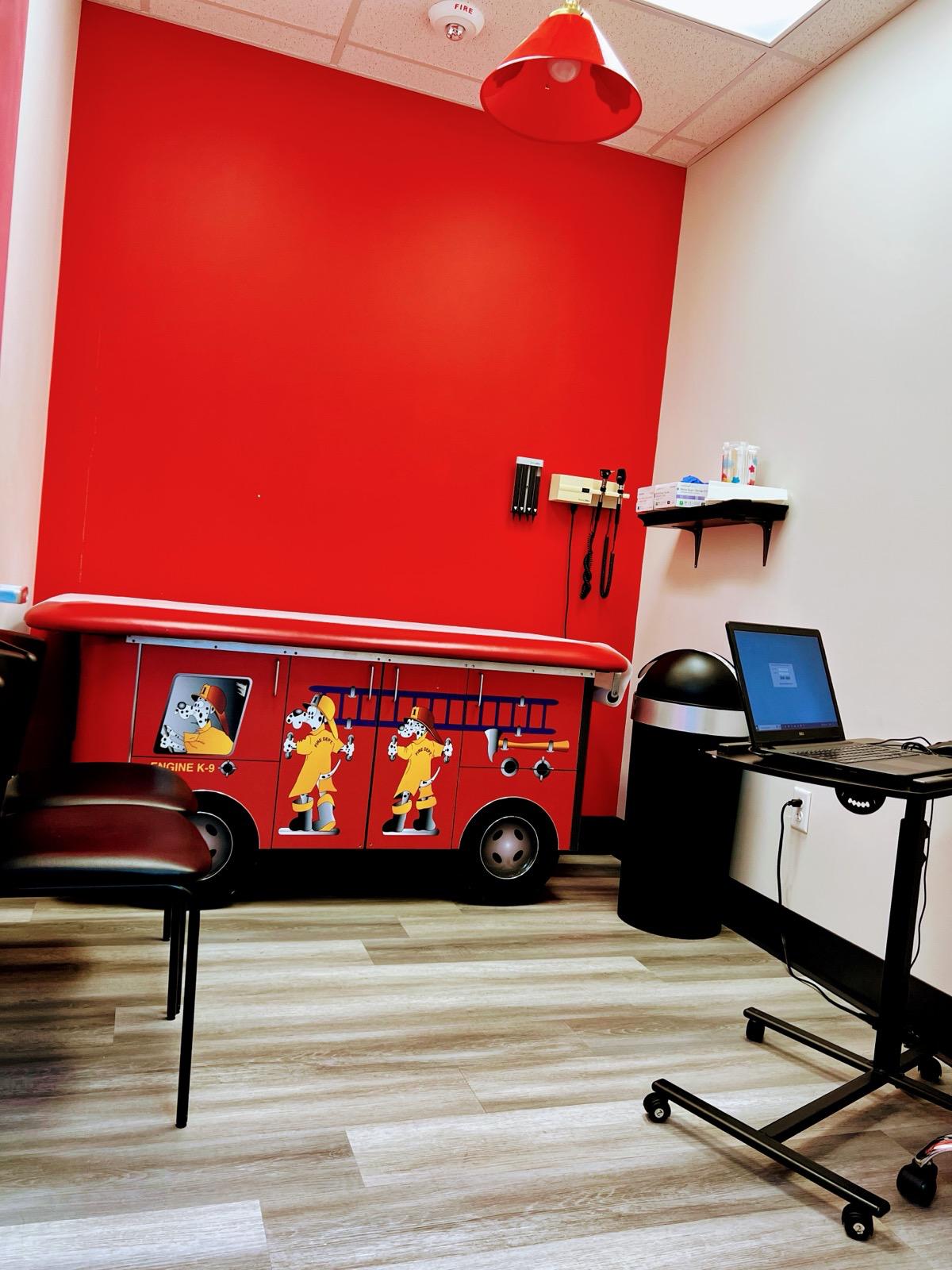Childhood obesity is more than a number on the scale—it’s a signal that something in a child’s world needs attention. As pediatricians, we wish every parent understood both its complexity and the power they hold to influence change. In this guide, we offer insight, clarity, and practical strategies for families navigating this challenge.
We’ll explore:
-
Why childhood obesity matters from a pediatric perspective
-
How it affects a child’s physical and emotional health
-
Practical, pediatrician-backed strategies families can implement
-
How to create a nurturing environment centered on health, not shame
Throughout, you’ll find references to other essential resources like gentle behavior support and ear infection care—because a healthy child is a thriving child in every aspect of life.
Understanding the Pediatric Lens on Childhood Obesity
As pediatricians, our focus isn’t on short-term weight loss—it’s on long-term well-being. We want parents to know:
-
Childhood obesity rarely springs from laziness or spoiled behavior. Genetics, environment, and lifelong habits often play bigger roles.
-
We measure health, not just weight. We watch for blood pressure, cholesterol, blood sugar, and fitness levels—metrics that tell us more about a child’s health than the scale alone.
-
Timing matters. Early childhood is a critical window for setting patterns that affect health into adulthood.
-
We take a whole-child approach. Emotional, social, and developmental factors—like behavior and infections—are all part of the picture. We recommend exploring resources on helping children adjust to ear infections and gentle behavior guidance because health isn’t just physical; it’s intertwined with every other facet of childhood.
When we assess obesity, we’re not placing blame—rather, we’re setting the stage for supportive, sustainable change.

Why Weight Matters (But Isn’t the Whole Story)
Physical Health Implications
-
Metabolic risk factors: Obesity in childhood can raise risks for high blood pressure, Type 2 diabetes, fatty liver disease, and abnormal cholesterol.
-
Physical stress: The growing bones and joints bear extra load, making children more likely to experience fatigue and joint pain.
Emotional and Social Impact
-
Self-esteem: Young children can feel “different,†struggling to keep up with peers in sports or physical play. That can hurt confidence and happiness.
-
Bullying risk: Sadly, heavier children are often targets in school or on playgrounds—adding social stress.
Developmental Connections
A child’s energy, sleep quality, and behavior are interwoven. A child struggling with obesity may also struggle with focus, sleep, tantrums, or adapting to new siblings or illnesses. That’s why tools like the ear infection guide and gentle parenting advice dovetail so naturally—they address the whole environment in which weight and health evolve.
Root Causes from a Pediatrician’s Perspective
1. Genetics and Family Patterns
Genetics set the playing field—how the body stores fat, processes nutrients, and uses energy. But genes interact with environment. One family’s gene-environment combination might lead to obesity; another’s might not.
This is why we often ask about family history:
-
Do parents or siblings have obesity?
-
Are there health conditions like diabetes or high cholesterol?
-
What are typical daily routines like?
2. Food Environment
-
High-calorie convenience foods: Processed and fast foods are everywhere and often easy to grab—but calorie-dense and nutrient-poor.
-
Portion distortion: Super-sized portions may be marketed as “value,†but kids don’t need adult-sized servings.
-
Emotional eating: Kids may learn to eat for comfort rather than hunger—especially if they’ve faced illness, stress, or transitions (for instance, when a new sibling arrives).
This is where understanding gentle discipline around food choices becomes invaluable, echoing the advice in gentle behavior strategies.
3. Physical Activity
-
Screen-time overload: Sedentary behavior—watching TV, playing video games—displaces opportunities for fun, active play.
-
Limited outdoor play: Safety concerns or lack of outdoor space can severely limit daily activity.
4. Sleep and Stress
-
Poor sleep affects hunger hormones, making kids hungrier and less able to resist unhealthy food.
-
Family stress—from school, siblings, illnesses—can contribute to both emotional eating and behavioral disruptions.
What Pediatricians Want Parents to Know: 8 Key Messages
1. Healthy Bodies Come in Different Shapes
There’s no one-size-fits-all when it comes to kids. Two children with the same weight might have different builds, muscle mass, and health profiles. That’s why pediatricians assess BMI percentiles alongside growth charts, nutrition, and activity levels.
2. Obesity Doesn’t Define a Child
We want parents to focus on behaviors—not the number on the scale. Shaming, punishment, or extreme diets can do more harm than good. Our goal is to help children build lifelong skills—balanced eating, joyful movement, body respect—without feeling like they’re “bad†or needing to be “fixed.â€
3. Start Small, Think Long-Term
Big goals are inspiring, but small steps can have bigger staying power. Parents often ask, “What should I have my child do today?†Out of healthy snack choices to adding an extra play break, these small changes build forward momentum.
4. Parent Modeling Matters
Kids learn from what they see. A parent who chooses fruits and models active play sends a stronger message than lectures ever could. We sometimes say: “Be the health habit you want your child to pick up.â€
5. Food Isn’t a Reward or Punishment
Using food as a behavioral tool often teaches kids to associate food with emotional comfort or control. Instead, pediatricians encourage non-food rewards like extra bedtime stories or screen-free family games.
This is where disciplined, gentle parenting overlaps—see gentle discipline strategies for ideas on nurturing cooperation without sweets or treats.
6. Movement Should Be Fun, Not Coerced
Kids are more likely to stay active if they enjoy the activity. That doesn’t mean pushing them into sports they dislike, but exploring what lights them up—dance, biking, martial arts, or climbing. We help families create movement routines that feel like play, not a chore.
7. Sleep Is a Health Pillar
We emphasize consistent sleep routines. Screens off before bed, calm bedtime rituals, and sleep hygiene aren’t just for mood and school—they support metabolism and healthy weight regulation.
A rested child is less hungry, less irritable, and more ready for healthy habits.
8. Setbacks Are Normal
Change doesn’t happen overnight—and that’s okay. Pediatricians want parents to know that a regain, a stressful week, or missed meal isn’t a reason to give up. We celebrate every step forward.
How Pediatricians Help Families Build Healthy Habits

The Wellness Visit: Not Just Lip Service
We dig deeper than measuring height and weight. These visits explore:
-
Hunger/fullness signals
-
Typical meals and snacks
-
Activity routines and screen time
-
Sleep patterns and family stressors
-
Emotional or behavioral cues
When we uncover issues—maybe sleep or ear aches, as noted in our ear infection guide—we connect the dots.
Collaborative Goal-Setting
No more “You have to lose weight.†Instead, we co-create realistic objectives:
-
“Let’s aim for two vegetable servings at dinnerâ€
-
“Can we swap soda for sparkling water 4 days a week?â€
-
“How about a bike ride together after school?â€
Ongoing Support
We follow up on progress, adjust goals, and congratulate every win. We also invite families to use our resources on gentle behavior (“How Gentle Discipline Can Encourage Better Behaviorâ€) to reinforce guidance at home.
Connecting to Specialists
If there are physical (orthopedic, sleep apnea) or psychological concerns—like depression, bullying, or self-esteem issues—we network with the right team: dieticians, counselors, ENT doctors, or speech and developmental specialists.
Addressing Complex Situations
Emotional or Disordered Eating
Some children may use food to manage feelings. In these cases, pediatricians may refer families to licensed counselors specializing in pediatric eating behaviors.
This approach avoids labeling eating as “bad,†and instead supports emotional tools.
Medical Complexity
Conditions like hypothyroidism, hormonal imbalances, or medications can contribute. Pediatricians monitor health and refer to specialists where needed—again, treating the child, not just BMI.
Family Challenges
Busy schedules, financial barriers, and caregiver stress can limit healthy habits. Pediatricians aim to provide practical, low-cost solutions and connect families to community programs where possible.
Retaining Motivation: The Pediatrician’s Perspective
Kids (and parents!) stay motivated when they feel empowered and supported—not shamed.
-
We celebrate any positive change, small or big.
-
We remind families that weight can fluctuate—that’s normal.
-
We reinforce that loving their body matters just as much as caring for it.
-
We check in on emotional and behavioral aspects, linking it to resources like the ear infection or behavior blog as needed.
When to Seek Pediatric Support
Triggers to Book a Visit
-
BMI consistently above the 85th percentile
-
Rapid weight gain over months
-
Complaints of joint pain, fatigue, or shortness of breath with play
-
Mood, sleep, or school functioning issues
-
Family history of diabetes or heart concerns
What to Expect in Your First Visit
-
Honest discussion—no blame, no guilt
-
Assessments: growth patterns, diet, activity, sleep, mood
-
Personalized action plan: goals you feel comfortable with
-
Supplemental resources: nutrition counselors, support groups, behavior tools
The Pediatric Promise
As pediatricians, we want every child to thrive—physically, emotionally, socially. Childhood obesity is complex, but it’s not a crisis without solutions. With thoughtful, compassionate guidance and small, supportive steps, families can foster habits that last a lifetime.
We urge parents to start today:
-
Book a visit to talk honestly about health—not numbers.
-
Use everyday moments as teaching moments—not punishments.
-
Nurture your child’s body, yes—but also their heart and self-worth.
Connect with us, ask questions, and reach out. As pediatricians, we’re here for you—today, tomorrow, and every milestone in between. When the body is strong and the spirit is supported, nothing is beyond reach.
